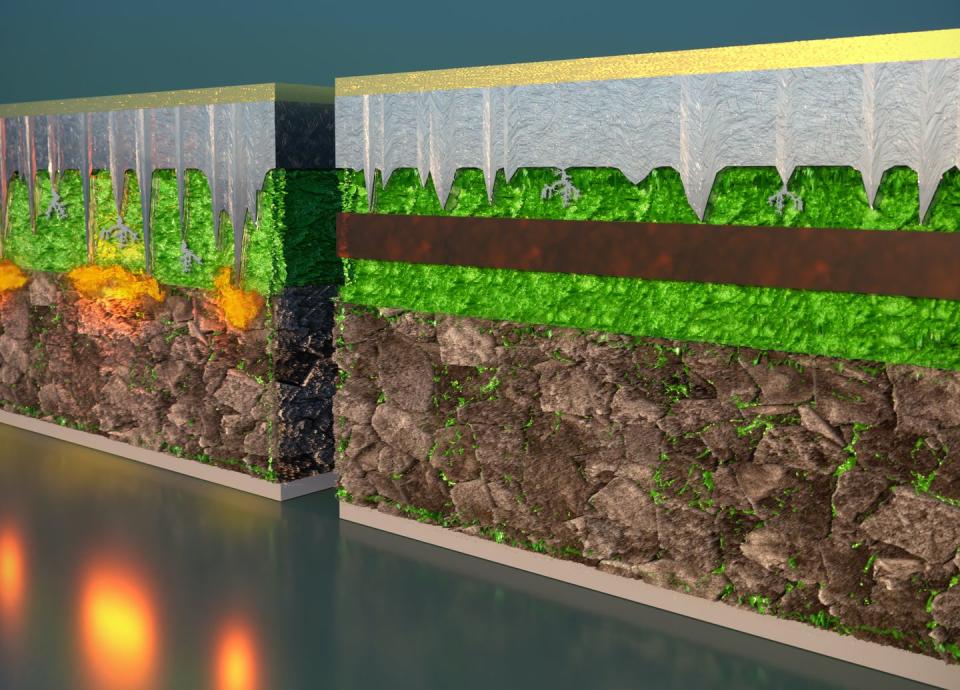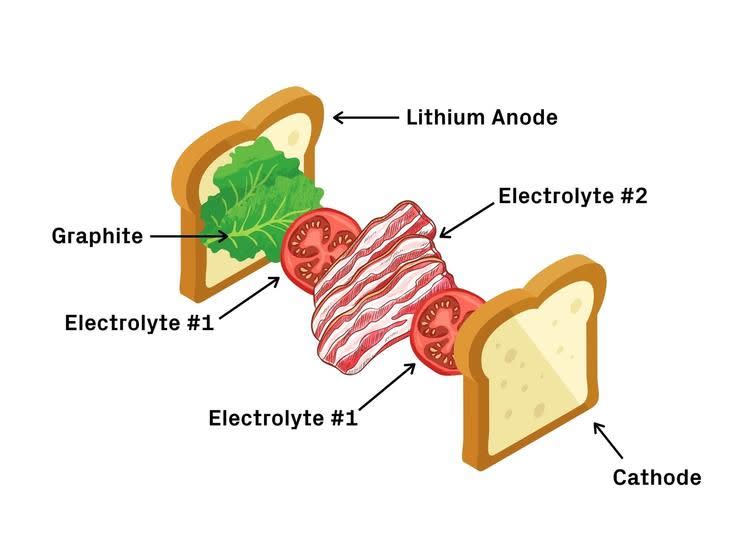The Holy Grail Is Here: A Stable, Solid-State, Lithium-Metal Battery

“Hearst Magazines and Verizon Media may earn commission or revenue on some items through the links below.”
A new paper presents a stable lithium-metal battery design for the first time.
Lithium-ion batteries have flaws that lithium-metal batteries could fix.
This new battery adds a self-healing technology that will close cracks where dendrites form.
Lithium-ion batteries are the backbone of most of today’s electronic devices, including electric vehicles. But for all of their game-changing benefits, the batteries still have an inherent flaw: dendrites. These thin, snaking, tree-like pieces of lithium form sharp points and end up piercing the battery, causing short circuits and other problems. This ultimately shortens the lifespan of lithium-ion batteries, and leaves major room for improvement.
➡ You think science is badass. So do we. Let’s nerd out over it together.
Scientists have focused, then, on studying lithium dendrite formation to see how they can make better, longer-lasting batteries for electric vehicles. Now, Harvard University researchers say they have the answer: a lithium-metal battery made of a solid-state metal material rather than lithium-ion, eliminating the pesky dendrites and offering more structural stability than a battery consisting of liquid or graphite materials.

Think of the new battery like a BLT: “Our multilayer design has the structure of a less-stable electrolyte sandwiched between more-stable solid electrolytes, which prevents any lithium dendrite growth,” the scientists say in their new study, which appears in Nature.
Making the battery out of mostly solid materials helps prevent dendrite formation in more than one way. Mechanically, it’s far easier to crack a thin shell of metal or ceramic than to penetrate a solid battery anode, for example. But this design goes a step further, chemically accounting for any cracks with “dynamically generated decompositions” that fill and stop potential dendrites, the scientists say.

What changes if we switch from lithium-ion batteries to lithium-metal ones? Well, lithium-metal batteries are lighter, more powerful, and longer-lasting ... in a perfect world. Unfortunately, when scientists have experimented with lithium-metal batteries in the past, they’ve been extremely unstable and often exploded. That’s why scientists have long clamored to stabilize the lithium-metal battery and bring a viable commercial version to the marketplace.
Reducing or eliminating dendrite formation is critical to any of these designs, because removing the most volatile portion of the battery’s life greatly reduces any adverse outcomes. The Harvard scientists tested their battery over 10,000 charge cycles—competitive with the lifetime of a conventional fossil fuel car and a huge step forward. They found their design still held 82 percent of its charge after 10,000 cycles.
From Harvard’s press release:
“This battery technology could increase the lifetime of electric vehicles to that of the gasoline cars—10 to 15 years—without the need to replace the battery. With its high current density, the battery could pave the way for electric vehicles that can fully charge within 10 to 20 minutes.”
What does this all mean for the future of batteries and electric vehicles? If the design works as planned, it could singlehandedly open the door for lithium-metal batteries in the marketplace. For electric vehicles, the cost of batteries alone is thousands of dollars, and reducing the failure rate, as well as the weight of the batteries, could create a huge savings.
“A lithium-metal battery is considered the holy grail for battery chemistry because of its high capacity and energy density,” Harvard’s Xin Lee told the Independent. “This proof-of-concept design shows that lithium-metal solid-state batteries could be competitive with commercial lithium-ion batteries.”
🎥 Now Watch This:
You Might Also Like

